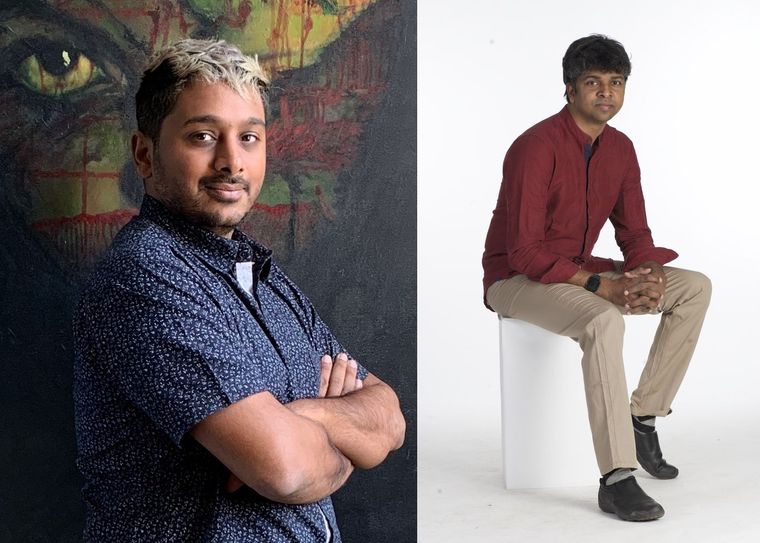Months ago, when artist Raghava K.K. sent a painting to his lyricist friend Madhan Karky, he was so impressed with the work that he wrote a few lines to go with it and sent it to a music composer, who came up with a piece of music. It was then sent to a visualiser, who created fitting imagery. What next, was Karky’s question. He wanted to recreate the painting with more artistic elements and make it reach a wider audience.
Thus was born Canvas, a virtual tool to streamline a content creator’s online presence across platforms and make more money. It helps artists, music composers, filmmakers and other creators focus on their work by managing the logistics and other aspects of content creation through its intuitive interface and technology. It was conceptualised and founded by entrepreneur Vignesh Ramaswamy, with Raghava as its founding vision director and Karky, its chief creative officer. With the pandemic having opened up the digital space, Karky feels creators need more platforms to display their work to the outside world. Canvas offers a “comprehensive ecosystem” for this, he says.
An engineer-turned-media explorer since 2010, Ramaswamy had earlier started Penumbra, a campus magazine with more than 1,000 writers across 92 Indian colleges. In 2018, he created Tartl, a tool used by over 6,000 writers to monetise their work. “Canvas has been built on the single core value of protecting the interests of the creative individual,” says Ramaswamy. “It is the ultimate space for creators to synchronise their offline lives with their virtual personas. Anyone can create, protect, package, distribute, engage and monetise using the tool.”
Today, almost everyone is a content creator in some way or the other. Though brimming with ideas, they barely find the time or resources to plan, manage and monetise their content. “We founded Canvas to give creators their own real estate to style, embellish and sell their ideas through a single channel,” says Ramaswamy. According to him, Canvas is a home-grown initiative with huge international possibilities in a digital world. As a journalist, I found Canvas a user-friendly space which allowed me to publish content almost as soon as I wrote it down.
Canvas has provisions to ensure that your work—whether it is art, photography, podcasting, writing, music or filmmaking—is not plagiarised. It also gives utmost freedom and flexibility to the creators. “For instance, if you are an author and you want only the final chapters of your book to be monetised, you can do that,” says Ramaswamy. Canvas has also embraced cryptocurrency and is the first Indian company to use non-fungible token (NFT) integrations. Additionally, the tool allows micro-transactions. Creators can now put anything from a sentence to a word, or even an audio/video file, behind a paywall, opening up opportunities for further monetisation.
At a time when the passion economy is booming in India, Canvas is custom-made for creators who want to ensure that they get complete freedom to structure, monitor and own their work in a safe space, without worrying about technology and distribution channels, says Raghava. “With an easy drop and play approach, we want content creators to think of Canvas as their ultimate toolkit with everything in one place,” he adds.
Canvas allows easy integrations with YouTube, Vimeo, Instagram, etc. “It’s almost like a blend of their personal portfolio and their own mini website allowing them to make transactions right inside a single tool and own it completely, and that’s what makes Canvas stand out,” says Ramaswamy. “It is a content-centric modular environment, taking care of publishing, distribution and direct audience engagement.” Karky, Raghava and Ramaswamy envision building the future of the creative economy and are confident that Canvas is an exclusive tool. As of now, over 600 sub-culture creators are using the tool, and there are over 6,000 invite requests. Creator collectives like Dubai Institute of Design (DIDI), National School of Journalism (NSOJ) and popular collectors like Rajesh Vaidya, Kirthi Shetty and Nikesh Murali have started using it. While at present it is invitation only, Canvas will soon be made available to the public.



